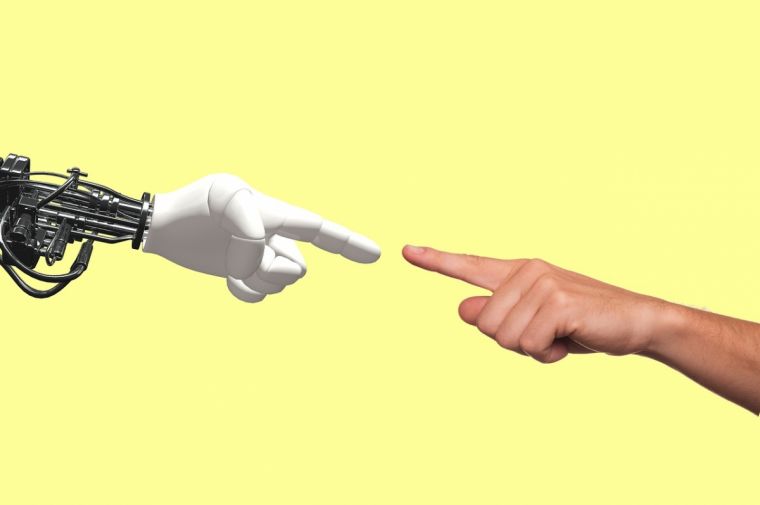Should we replace human contact with robot 'companions' – or is there a better way?
I never had a specific imaginary friend growing up, but I spent hours creating worlds and characters. Not much has changed on that score and I still love getting lost in my imagination. Unfortunately imaginations are being curtailed because, thanks to robotics, children can now meet their imaginary friend in real life.
'Woobo' is an interactive toy that resembles the Furby of the 90s but has a screen for a face. It can play charades, tell a child how long to brush their teeth and when to wake up, and even teach mindfulness exercises. If a parent cannot make their child's bedtime, Woobo can. It answers their questions and is a companion that they can play games with. All for the price of £120, but who can put a price on friendship, right?

This toy is an extraordinary advancement in robotics, but without wanting to sound like a killjoy, I think it's is another step away from what children really need. Play is important in children's development as it gives them the opportunity to develop new ideas and skills. They also need real, authentic human relationships and interaction with other children and adults to learn about the world around them. Robots are not meant to be mentors or parents. Children need living and breathing role models who can teach, protect, advise, love and support them.
However, it's not just children who are being targeted with robotics. Robot pets have been created to help the elderly avoid loneliness. Groove X, a Japanese startup, has created 'LOVOT' (love x robot = lovot), a robot that will 'bridge the gap' between our 'plentiful lifestyles and our emotional engagement and sense of satisfaction'. This robot is designed to make people happy, has sensors to respond to touch and demands love by following its owner around. The technology is incredibly impressive, but when the manufacturer says that it 'heals your heart', that is a pretty bold claim.
Similarly there is Kiki, the pet robot that also professes to bring happiness. It picks up on non-verbal communication, recognises faces from up to a distance of two metres away and enjoys a cuddle as it has 16 sensors all over. It is an amazing development in robotics and I applaud those who have been able to create this AI-powered machine. But I draw the line at 'companion'.
Authentic human relationships and interaction with others are desperately needed, even in the later stages of life. According to Age UK, 3.6 million older people in the UK live alone, of whom over 2 million are over that age of 75, and 1.9 million older people often feel ignored or invisible. Loneliness does not just affect older people – it can be found through all of society and the aim of these robots is to try and fill that void. We can embrace the benefits of robotics, but let's not replace or ignore real interaction with others in the process. We can make a difference in this.
One way that loneliness and exclusion has been addressed is through intergenerational care where children visit the elderly in care homes. United For All Ages, a think-and-do social enterprise, are aiming to support the development of 500 shared centres by 2023 where the old and young can spend time together. With shared spaces for activities and experiences, it brings interaction between the generations as children learn and older people experience improved health and reduced loneliness.
For those who are socially isolated within their own home, whether younger or older, there is a need for conversation, care and kindness. We need to get back to the basics of getting to know the people in our communities and practically dropping by or picking up the phone to see how they are. The church is well placed to lead the way pastorally. Churches bring together young and old through a variety of activities and groups, they meet practical needs and share the love of God which has the power to heal every human heart – unlike the robots mentioned above.
There are some fantastic projects that are already under way and plenty more individuals who are living out their faith like this. But let's not rest on our laurels, because there are always more people to reach and more that we can do.
We could mobilise others to help, raise awareness of what is available in the local area, start up a group or service to address a specific need, support other churches, meet new people through existing activities running in the community, invite more people over for dinner, befriend others by making regular phone calls, offer to support a family by babysitting and getting to know them, become a mentor for a young person, visit a care home, meet those neighbours at the other end of the street, be intentional in our conversations with everyone we come across, speak to people in the street, support those who are campaigning for change and much more besides.
Technology is here to stay and robots may be a part of that change for some people. There are benefits that can bring enjoyment and fun into the lives of both the young and old. However, real companionship and love can neither be experienced nor truly reciprocated by a robotic pet. It is our responsibility to bring the love of Christ into our communities through practical action and genuine care and concern for everyone. That is the better way.
Ruth Clemence is a freelance writer and award-winning blogger based in Devon. She can also be found writing at www.ruthclemence.com and on Twitter @ruth_the_writer.











